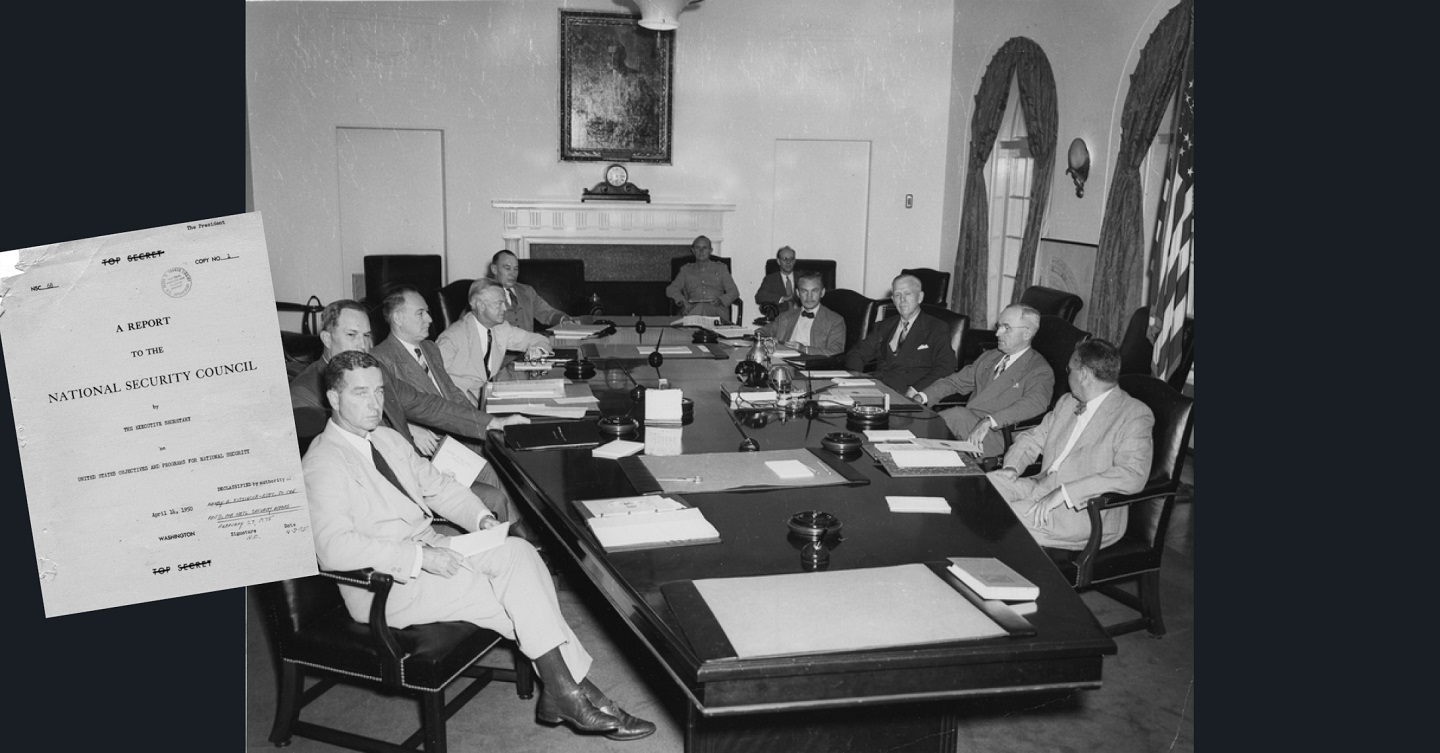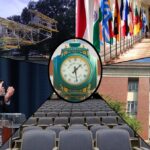
…a foundation of liberal states that are willing to abide by, and enforce if necessary, the order’s ideals does not exist in East Asia.
The liberal international order, a mainstay of U.S. defense strategy for nearly the last century, is facing its toughest challenge in the face of Chinese expansion in East Asia. The order was built on a foundation of shared ideologies among the United States and Western European states. However, a foundation of liberal states that are willing to abide by, and enforce if necessary, the order’s ideals does not exist in East Asia. Due to this reality, the United States has been limited in its ability to achieve security objectives vis-à-vis China in the region. As a result, the United States is reexamining its use of the order as a means to influence China. As it does so, the United States must change its approach to one that is directed at achieving limited alliances and exploiting short-term opportunities to frustrate Chinese regional advances. This new approach runs counter to the post-Cold War vision for the international liberal order to drive changes in state behaviors, but a different approach is necessary if the United States is to achieve its strategic objectives in East Asia.
History of the Liberal International Order in U.S. Defense Strategy
For the last several decades, the United States has made the maintenance of the liberal rules-based international order – an amalgamation of widely accepted laws, norms, and systems facilitated through a group of participating states within the international community – a key foreign policy priority and strategic cornerstone. In 1950, U.S. National Security Council Report 68 identified a key U.S. national security objective: to “lead in building a successfully functioning political and economic system in the free world.” More recently, the 2010 U.S. National Security Strategy directed that the international order is an “end that we seek in its own right,” through which international security is maintained by leveraging incentives and costs to “those nations that defy international norms or fail to meet their sovereign responsibilities.” The development of the order occurred in three stages over the last century from a tool envisaged to prevent major power conflict after WWI, to an alignment of like-minded Western democratic powers following WWII and throughout the Cold War, to the United States’ primary mechanism to exert its role as the world’s premiere major power after the fall of the Soviet Union. This third post-Cold War period marked a significant change in the order from an alignment of like-minded states to a means to force change among non-cooperative states.
In 1998 speech about NATO expansion, Secretary Madeline Albright stated that “aspiring allies have strengthened their democratic institutions, improved respect for minority rights, made sure soldiers take orders from civilians, and resolved virtually every old border and ethnic dispute in the region.” Albright’s speech reflected the new framework for participation in the order and defined reasons for non-alliance, thereby leveraging an expectation that a desire to participate in the order could force state behavioral changes. However, the United States’ hope that China would acquiesce to institutional pressures, abide by the international liberal order, and behave as a more benevolent state power has not come to fruition.
China’s Challenge
China not only balks at the U.S.-led international order (even as it has benefited from it), but also seeks to change the prevailing international order to one more favorable to its strategic concerns. In 2001, China led the creation of the Shanghai Cooperation Organization, an organization with several goals, including “moving towards the establishment of a democratic, fair and rational new international political and economic order.” The organization now includes twelve member and observer states which comprise the majority of Asia’s populace.
Chinese expansion into the East and South China Seas have led to more direct assaults on the U.S.-led international order. The resource rich areas in the East and South China Seas are hotly contested, with multiple regional states making claims to territories and economic zones. However, China’s claim to vast swaths of these seas is the most brazen of the claims. Its ill-defined 9-dash line, which China uses to lay claims to areas in the region, encompasses the majority of the seaborne areas near the coasts of neighboring states. China has used a series of calculated moves over the past several years to increase its influence in the region and gradually normalize its control over these areas, including: fishing bans against neighboring states in contested areas; the establishment of air defense zones in the East China Sea; the seizure, buildup, and militarization of off-shore islands; and significant military modernization to enforce its actions.
The order is only effective if participant states abide by the order’s rules and are able and willing to enforce them — there is no inherent enforcement capability within the order.
In 2016, an international tribunal under the United Nations Convention on the Law of the Sea completed a multi-year arbitration case initiated by the Philippines regarding Chinese expansion into the South China Sea. The ruling favored the Philippines and condemned China’s expansive actions and claims in the region. However, this decision did nothing to stop China.
The Chinese Communist Party’s official newspaper, People’s Daily, reported that “the Chinese government and the Chinese people firmly oppose [the ruling] and will neither acknowledge it nor accept it.” The Chinese Society of International Law further stated, “China has indisputable sovereignty over the South China Sea Islands and the adjacent waters.” A BBC press release on the ruling highlighted a key problem: “The ruling is binding but the Permanent Court of Arbitration has no powers of enforcement.” Less than a year later, President of the Philippines Rodrigo Duterte espoused this sentiment in an interview with RT: “Do you expect me to fight China in a war? It’s going to be a massacre.”
Therein lies the paradox of U.S. reliance on a rules-based international order as a mechanism to achieve strategic goals in this contested environment. The order is only effective if participant states abide by the order’s rules and are able and willing to enforce them — there is no inherent enforcement capability within the order. The Philippines’ case was but one of several recent examples of China eschewing international norms and exerting its will in the region.
A New Approach
The liberal international order is at the precipice of its next evolutionary change in the face of a rising China. The order of the interwar period after WWI and during the Cold War was built on a foundation of western liberal state ideologies. For states already ideologically aligned, the liberal order was an outward display of that alignment. Particularly during the Cold War, the order was a visible means to counter the Soviet ideology. Even while the order’s impact and participation were felt globally, western states remained at the heart of the international liberal order’s development and promulgation throughout its existence. Most East Asian states are not aligned along similar ideologies, nor are they prone to form lasting alliances.
The 2019 Democracy Index identifies the majority of East Asian states as trending authoritarian. These states are typically less supportive of a global, rules-based order. As John D. Ciorciari argues in “The Limits of Alignment,” developing states in East Asia have historically limited their commitment to alliances with major powers. Ciorciari argues that these states “usually prefer dating to marriage.” Moreover, these states are often unwilling to abide by the aforementioned required framework. This unwillingness was exemplified when President Duterte eschewed U.S. support and turned to Russia and China in the wake of U.S. condemnation of counter-narcotics practices and apparent human rights violations in the Philippines. The Philippines has continued to flip-flop on its partnership with the United States, providing just one example to support Ciociari’s claim and highlighting the tendency of East Asian countries to avoid commitment to firm allegiances.
The United States can no longer rely on the willing allegiance of partner states, as witnessed during the early post-Cold War transition, to counter China. This new era of competition and gray zone conflict will require the United States to adopt more tailored approaches with individual states to seize opportunities at specific junctures. This will look similar to activities that took place along major power peripheries during the Cold War to thwart Soviet Union expansion. However, it must be accomplished without the foundation and assurances of the liberal international order.
Instead of attempting to build broad alliances, coalitions and institutions to counter Chinese expansion, the United States should attempt to align with individual states at critical moments and locations. The U.S. must take advantage of these opportunities by seeking and offering more advantageous military partnerships with and limited economic deals for neighboring states with the goal of conducting a continuous campaign to frustrate Chinese strategic goals and advances. This will be expensive in both material costs and perceived costs to the current nature of the international liberal order. At times, the United States must be willing to engage and partner with authoritarian regimes and accept diverging values on liberal issues such as human rights. While this is a marked retreat from the post-Cold War international liberal order that the United States has supported over the last three decades, it is a necessary one.
Conclusion
The United States is at a crossroads. It will not (and should not) abandon the liberal international order as a foreign policy standard; however, its ambitious post-Cold War goal for the order to serve as a means to alter state behaviors and force compliance with international norms has proven unattainable against a rising China in a contested environment. The United States cannot rely on a broad coalition of states to effectively influence China. Therefore, the United States must seek different means to counter Chinese expansion, particularly in East Asia. It must direct its efforts at short-term opportunities and limited partnerships with neighboring states to frustrate Chinese expansion over the long-term. The United States must focus on increasing the cost and difficulty of Chinese expansion in East Asia so as to influence Chinese perceptions and behaviors over time. Doing so will leave the United States better poised to counter and deter future Chinese aggressions in the region.
Jarrod Knapp is an Air Force Lieutenant Colonel and a career intelligence officer currently serving as a squadron commander in the Indo-Pacific. The views expressed in this article are those of the author and do not necessarily reflect those of the U.S. Army War College, the U.S. Army, the U.S. Air Force, or the Department of Defense.
Photo Description: President Harry S. Truman with members of the National Security Council. From bottom left, clockwise around the table: Assistant Secretary of the Air Force Cornelius Vanderbilt Whitney; Secretary of the Army Kenneth Royall; Executive Secretary of the National Security Council Sidney Souers; National Security Resources Board Chairman Arthur M. Hill; Director of Central Intelligence Roscoe Hillenkoetter; Secretary of Defense James Forrestal; Secretary of State George C. Marshall; President Truman; Under Secretary of the Navy W. John Kenney. The two men seated at the back are Major General A. M. Gruenther, Director, Joint Chiefs of Staff (left); and Robert Blum, Foreign Affairs Specialist, Department of Defense (right). August 19, 1948
Photo Credit: White House Photo





From the conclusion of our article above:
“The United States is at a crossroads. It will not (and should not) abandon the liberal international order as a foreign policy standard; however, its ambitious post-Cold War goal for the order to serve as a means to alter state behaviors and force compliance with international norms has proven unattainable against a rising China in a contested environment.”
Let me (using John Ikenberry’s quoted items below) offer an alternative explanation as to why the liberal international order can no longer “serve as a means to alter state behaviors and force compliance with international norms.” (Note that, in Ikenberry’s discussion below, he does not blame this phenomenon on such things as “a rising China.”)
“So the future of liberal internationalism hinges on two questions. First, can the United States and other liberal democracies recapture their progressive political orientation? America’s ‘brand’—as seen in parts of the non-western world—is perceived to be neo-liberal, that is, single-minded in its commitment to capital and markets. It is absolutely essential that the United States shatter this idea. Outside the West—and indeed in most parts of Europe—this is not the core of the liberal democratic vision of modern society. If there is an ideological ‘centre of gravity’ in the wider world of democracies, it is more social democratic and solidarist than neo-liberal. Or, to put it simply: it looks more like the vision of liberal democracy that was articulated by the United States during the New Deal and early postwar decades. This was a period when economic growth was more inclusive and was built around efforts to promote economic stability and social protections. If liberal internationalism is to thrive, it will need to be built again on these sorts of progressive foundations. … ”
(See the article “The End of Liberal International Order?” by G. John Ikenberry, in International Affairs, Volume 94, Issue 1, January 2018, Pages 7–23.)
Thus, what Ikenberry seems to be telling us here, this is that a “rising China” is not the reason why the liberal international order has lost its appeal and ability to influence populations, and state leaders, both here at home and there abroad. Rather, as per Ikenberry’s thoughts above, this such “loss” can best be traced, instead, to:
a. Our post-Cold War shift to “neo-liberalism” and
b. The adverse consequences and effects (both here at home and there abroad) of this such decision.
From earlier in Ikenberry’s article:
“Taking all these elements together, this account of the crisis can be understood as a crisis of success, in the sense that the troubles besetting the liberal order emerged from its post-Cold War triumph and expansion. Put differently, the troubles today might be seen as a ‘Polanyi crisis’—growing turmoil and instability resulting from the rapid mobilization and spread of global capitalism, market society and complex interdependence, all of which has overrun the political foundations that supported its birth and early development. They do not, on the contrary, constitute what might be called an ‘E. H. Carr crisis’, wherein liberal internationalism fails because of the return of Great Power politics and the problems of anarchy. …”
Bottom Line Thought — Based on the Above:
Ikenberry, thus, appears to tell us that we must make one of two choices here:
a. Continue with “neo-liberalism,” and watch America’s appeal and ability to influence populations and state leaders — both here at home and there abroad — continue to erode. Or:
b. Re-embrace “progressivism” — whose appeal Ikenberry suggests was the basis for our prior domestic and foreign policy successes.
With regard to my initial comment above, which suggest (via John Ikenberry’s thoughts) that (a) our ability to influence and alter the behaviors of populations and state leaders both here at home and there abroad; this, (b) may have been lost due to our post-Cold War move to neo-liberalism.
With regard to this such thought, it is important to see how countries such as China (a) appear to agree with this such understanding and (b) have moved out smartly to portray themselves as countries that DO NOT worship at the alter of neo-liberalism.
(Thereby, gaining the moral and strategic high-ground and, thus, marking themselves as being the true, legitimate and rightful leaders of the world today and going forward?)
In this regard, let us look at the December 2, 2020 Center for Security and International Studies (CSIS) paper “Ideological Security as National Security” by Jude Blanchette — much of which is a translation of a May 2019 article “Ideological Security in the Framework of the Overall National Security Outlook” by Tang Aijun, Associate Professor, School of Marxism, Central Party School of the Chinese Communist Party, Socialism Studies. Here is an excerpt:
“One such trap is the myth of neoliberalism. Neoliberal thought originated in developed capitalist countries of the West. Since the 1980s, and especially after the drastic changes in the Soviet Union and Eastern Europe, it has spread throughout the world through the “Washington Consensus.” Neoliberalism’s core value and concept is “freedom.” Neoliberalism holds that “individual freedom” is the highest-value demand and advocates freedom as a “universal value.” Individual freedom constitutes the fundamental yardstick for measuring all social activities, and individual freedom and personal interests become the reasons used to explain all individual or social behaviors and historical events. Taking individual freedom as its ultimate value, neoliberalism’s position in the economic field is embodied in the “three changes” [三化]: privatization, marketization, and liberalization. First, neoliberal economists advocate the “myth of private property rights.” They promote privatization for two main reasons: (1) private ownership can guarantee individual freedom, and individual ownership of the means of production gives individuals the opportunity to accumulate wealth and have the conditions for free choice, and (2) private ownership can stimulate individual proactivity, initiative, and creativity in economic activities, thereby increasing efficiency. …
The neoliberal trend of thought has severely affected China’s dominant ideology and has had a serious impact on China’s Reform and Opening policy and economic foundation. [Neoliberalism] not only endangers China’s ideological security but also endangers the state’s economic security. The values of the supremacy of the individual and freedom have a negative impact on dominant Chinese values such as collectivism, equity, and justice. The theory of privatization challenges the current Chinese concept of socialist ownership and impacts the economic foundation of public ownership. Both the theory of market omnipotence and trade liberalization are in fact opposed to the role of the government and government supervision and advocate ‘de-nationalization.’ These principles have had a [negative] impact on the Party’s leadership and the socialist state system.”
Bottom Line Thought — Based on the Above:
American authors like Jerry Z. Miller — in his ““The Mind and the Market: Capitalism in Western Thought” (see the section therein on Friedrich Hayek) — much like our Chinese professor above and John Ikenberry in my initial comment — ALL seem to point to (a) the American move to neo-liberalism beginning in the 1980s as having (b) significant negative effects:
Jerry Z. Miller: “All in all, the 1980s and 1990s were a Hayekian moment, when his once untimely liberalism came to be seen as timely. The intensification of market competition, internally and within each nation, created a more innovative and dynamic brand of capitalism. That in turn gave rise to a new chorus of laments that, as we have seen, have recurred since the eighteenth century: Community was breaking down; traditional ways of life were being destroyed; identities were thrown into question; solidarity was being undermined; egoism unleashed; wealth made conspicuous amid new inequality; philistinism was triumphant.”
By showing themselves as being AGAINST neo-liberalism — and as being an ALTERNATIVE to same — countries like China, thereby, may be able to “woo” nearby states and societies; states and societies who may also be facing the negative consequences of the U.S.’s move toward neo-liberalism beginning in the 1980s.
(Corrective action, thus, as suggested by Ikenberry in my initial comment above? Have America itself move more away from neoliberalism now and, thereby, “steal the wind” from China [et al.’s] world leadership “sails.” [Either that, or continue to decline both domestically and internationally?])